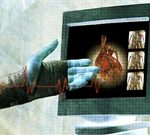
(HealthDay News) — Even as the country’s top health officials testified to Congress on Tuesday about the dangers of reopening too quickly, a new report shows millions more Americans are now venturing out in public. About 25 million more people went out on an average day last week than did during the six weeks of the U.S. lockdown, a New York Times analysis shows. From March 20, when states began urging people to stay home, to April 30, when many states started easing those restrictions, 43.8 percent of U.S. residents stayed home, the Times analysis showed. But last week, only 36.1 percent of Americans stayed home. The biggest drop in share of people staying home was in Michigan, where stay-at-home orders are actually still in place, the analysis showed. But during testimony delivered remotely on Tuesday to the Senate Health, Education, Labor and Pensions Committee, Dr. Anthony Fauci warned of the dangers of that trend, the Times reported. While more than 82,000 Americans have already perished from COVID-19, Fauci cautioned that the number is likely higher and will spike even more if some parts of the country reopen prematurely, the Times reported. “If that occurs, there is a real risk that you will trigger an outbreak that you may not be able to control,” Fauci testified. That could result not only in “some suffering and… read on >
























-300x200.jpg)













